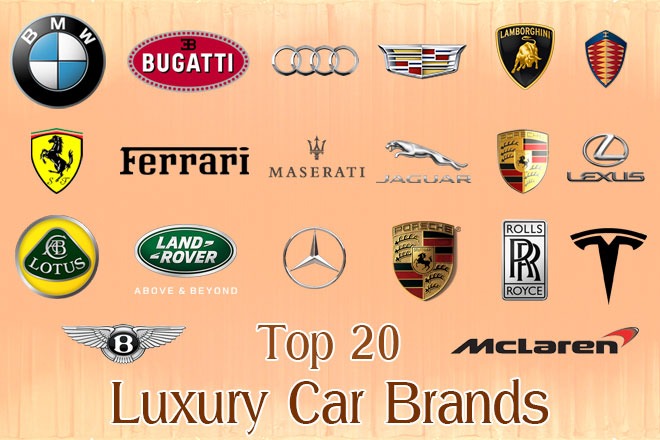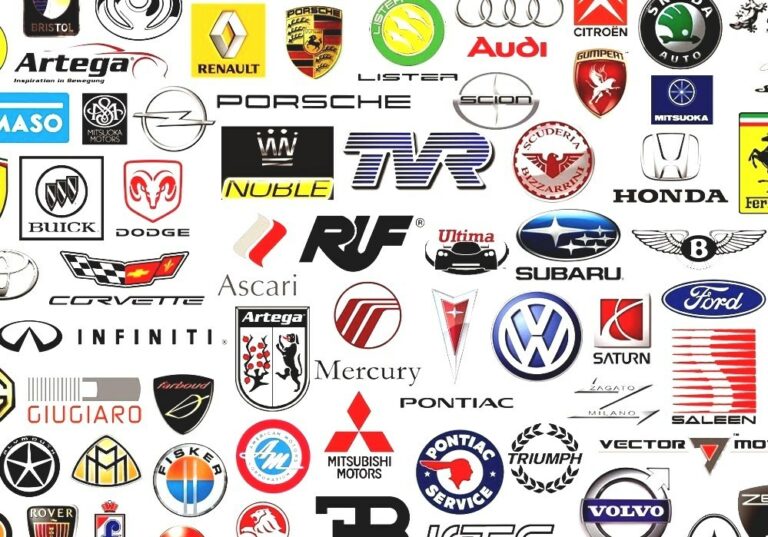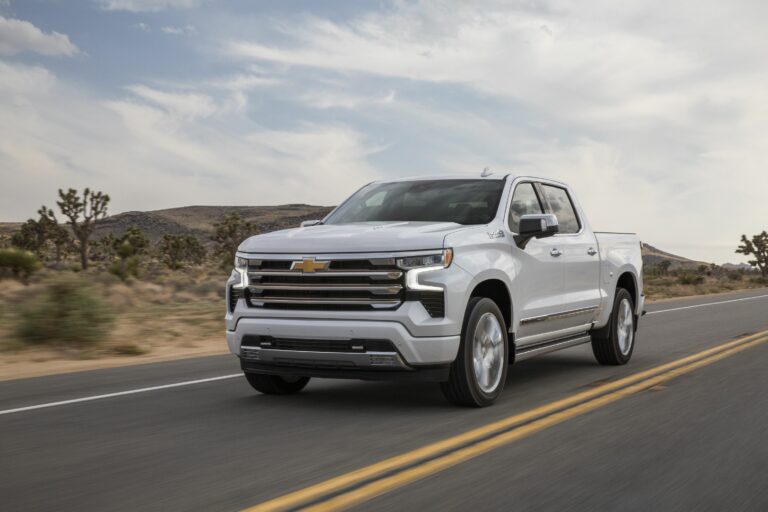Cheap Car Brands USA: Navigating the Affordable Automotive Landscape
Cheap Car Brands USA: Navigating the Affordable Automotive Landscape cars.truckstrend.com
In the bustling American automotive market, the term "cheap car brands" often conjures images of basic transportation, perhaps lacking in features or style. However, in today’s landscape, this perception couldn’t be further from the truth. Modern "cheap" car brands in the USA represent incredible value, offering a compelling blend of affordability, reliability, advanced technology, and surprising comfort. For budget-conscious buyers, first-time car owners, or families seeking a dependable second vehicle, understanding which brands consistently deliver quality without breaking the bank is paramount. This comprehensive guide will delve into the world of affordable automotive options available in the United States, providing insights, tips, and practical advice to help you make an informed decision.
Defining "Cheap" in the USA Automotive Market
Cheap Car Brands USA: Navigating the Affordable Automotive Landscape
When we talk about "cheap car brands" in the USA, we’re not necessarily referring to low-quality or unreliable vehicles. Instead, the focus is on brands that consistently offer models with lower starting Manufacturer’s Suggested Retail Prices (MSRPs) compared to the market average, while still delivering a high standard of safety, performance, and features. Beyond the initial purchase price, a truly "cheap" car offers a low total cost of ownership (TCO), encompassing factors like:
- Fuel Efficiency: Lower running costs due to excellent MPG ratings.
- Insurance Costs: Generally lower premiums due to repair costs and safety ratings.
- Maintenance & Reliability: Brands known for durable components and less frequent, less expensive repairs.
- Depreciation: While some cheaper cars depreciate faster, many hold their value surprisingly well.
Ultimately, a "cheap" car in the US market means getting the most bang for your buck – a vehicle that fits your budget upfront and continues to save you money down the road.

Top Contenders: Brands Known for Affordability and Value
Several automotive brands have carved out a niche for themselves by consistently offering budget-friendly options without compromising on essential quality. These brands understand the needs of the value-driven consumer and have tailored their lineups accordingly.
- Hyundai: Over the past two decades, Hyundai has transformed its image from a budget brand to a strong competitor known for its stylish designs, generous standard features, and industry-leading warranties (10-year/100,000-mile powertrain warranty). Models like the Venue, Elantra, and Kona offer excellent value.
- Kia: A sibling brand to Hyundai, Kia shares many of its strengths, including aggressive styling, feature-packed interiors, and a robust warranty. The Forte, Seltos, and Soul are popular choices for their affordability and distinctive personalities.
- Mitsubishi: While Mitsubishi’s lineup in the US is smaller, it remains a go-to for rock-bottom pricing and a long warranty. The Mirage, often the cheapest new car available, provides basic transportation with exceptional fuel economy. The Outlander Sport is another affordable SUV option.
- Nissan: Nissan offers several entry-level vehicles that are competitively priced. The Versa sedan is one of the most affordable new cars, while the Kicks subcompact SUV provides good fuel efficiency and practical space at a low cost.
- Chevrolet (GM): As a domestic brand, Chevrolet has a few models that appeal to budget buyers. The Trax and Spark (though discontinued for new sales after 2022, still a good used option) have historically provided accessible entry points into the new car market. The refreshed Trax is now a more spacious and appealing affordable SUV.
- Subaru: While not always the absolute cheapest upfront, Subaru’s base models like the Impreza and Crosstrek offer exceptional long-term value due to their standard Symmetrical All-Wheel Drive, strong safety ratings, and reputation for reliability, making them a smart long-term investment.
- Toyota & Honda: While generally perceived as mid-range, their entry-level models like the Toyota Corolla and Honda Civic are indispensable in the "cheap car" discussion. Their legendary reliability, low maintenance costs, and strong resale values make them incredibly affordable over their lifespan, often outcompeting lower-MSRP brands in TCO.
Key Factors for Choosing an Affordable Car
Beyond brand reputation, a savvy buyer considers several specific factors to ensure they’re truly getting a cheap car that meets their needs:
- MSRP and Trim Levels: Always compare the base model MSRPs. Higher trims quickly add costs, so identify what essential features you need versus what you can live without.
- Fuel Economy (MPG): This is a significant long-term cost. Even a few MPG difference can save hundreds of dollars annually. Consider hybrid options if available in your budget.
- Insurance Premiums: Get quotes for specific models before buying. Factors like safety ratings, repair costs, and vehicle theft rates influence premiums.
- Maintenance and Reliability Records: Research common issues and expected maintenance costs. Brands with strong reliability records (e.g., Toyota, Honda, Subaru) often lead to lower long-term expenses.
- Safety Features: Modern cheap cars often come with impressive standard safety tech (e.g., automatic emergency braking, lane-keeping assist). Prioritize these for peace of mind and potentially lower insurance.
- Standard vs. Optional Features: What’s included in the base price? Some brands offer more standard features, providing better value.
- Resale Value: While less critical if you plan to keep the car for a very long time, good resale value can significantly reduce your effective cost of ownership when it’s time to sell or trade in.
Practical Advice for Buying a Cheap Car
Navigating the purchase process effectively can save you even more money:
- Do Your Homework: Research thoroughly. Read reviews, compare specifications, and watch video walkthroughs of models you’re considering.
- Prioritize Needs Over Wants: Distinguish between essential features (e.g., Apple CarPlay, specific safety tech) and luxury add-ons (e.g., sunroof, premium audio).
- Test Drive Extensively: Don’t just take a quick spin around the block. Drive on highways, city streets, and parking lots to assess comfort, visibility, and handling.
- Consider Base Trims: These offer the lowest MSRP and often include all the essentials. If you need more features, compare the next trim up across different brands.
- Look for Incentives and Rebates: Manufacturers frequently offer cash back, low APR financing, or lease deals. Check brand websites and dealer promotions.
- Negotiate the Price: Don’t pay sticker price. Be prepared to negotiate, especially towards the end of the month or quarter when dealers are trying to meet sales targets.
- Explore Certified Pre-Owned (CPO): A CPO vehicle from a reliable brand can offer significant savings over new, often with a factory-backed warranty and thorough inspection, bridging the gap between new and used.
- Factor in Financing: Get pre-approved for a loan from a bank or credit union before visiting the dealership to ensure you get the best interest rate.
- Don’t Forget Destination Charges: MSRPs usually exclude destination charges (delivery fees), which can add $900-$1,300 to the final price.
Challenges and Solutions
While buying a cheap car offers significant advantages, there can be perceived challenges:
- Perception of "Cheap": Some may associate lower prices with lower quality or lack of prestige.
- Solution: Focus on the advancements. Modern affordable cars are safer, more efficient, and better equipped than ever before. Highlight their reliability and value.
- Limited Features on Base Models: Entry-level trims might lack certain conveniences or advanced tech found in higher trims.
- Solution: Prioritize what you truly need. Many essential features are now standard. For some desired features, aftermarket solutions (e.g., dash cams, phone mounts) can be cost-effective.
- Resale Value Concerns (for some specific models): While some affordable cars hold value well, others might depreciate faster.
- Solution: Research specific model depreciation rates. Maintain your vehicle meticulously with regular service records. A well-maintained car always fetches a better price.
- Availability: Popular affordable models can sometimes have limited inventory, leading to longer wait times or fewer negotiation opportunities.
- Solution: Be flexible with color or minor options. Expand your search to multiple dealerships. Consider ordering if you’re not in a hurry.
Comprehensive Price Table: Cheap Car Brands & Models in the USA (Approx. Starting MSRP)
The following table provides an overview of popular affordable models from brands known for value in the USA. Prices are approximate starting MSRPs for the base trim and do not include destination charges, taxes, or fees. Prices are subject to change based on model year updates and market conditions.
| Brand | Representative Model | Body Type | Approx. Starting MSRP (USD) | Key Features/Notes | Typical MPG (Combined) | Warranty (Basic/Powertrain) |
|---|---|---|---|---|---|---|
| Hyundai | Venue | Subcompact SUV | $19,900 | Stylish, compact, excellent warranty, good tech for the price. | 31 MPG | 5 yr/60k mi / 10 yr/100k mi |
| Kia | Forte | Compact Sedan | $20,000 | Sporty design, well-equipped base models, strong warranty. | 34 MPG | 5 yr/60k mi / 10 yr/100k mi |
| Mitsubishi | Mirage | Subcompact Car | $16,700 | Lowest MSRP, excellent fuel economy, long warranty. | 39 MPG | 5 yr/60k mi / 10 yr/100k mi |
| Nissan | Kicks | Subcompact SUV | $21,300 | Practical, good fuel economy, standard safety tech. | 33 MPG | 3 yr/36k mi / 5 yr/60k mi |
| Chevrolet | Trax | Subcompact SUV | $21,500 | Redesigned, more spacious, modern interior, good value. | 30 MPG | 3 yr/36k mi / 5 yr/60k mi |
| Subaru | Impreza | Compact Car | $24,100 | Standard Symmetrical AWD, strong safety features, good reliability. | 30 MPG | 3 yr/36k mi / 5 yr/60k mi |
| Toyota | Corolla | Compact Sedan | $22,000 | Legendary reliability, high resale value, standard safety suite. | 32 MPG | 3 yr/36k mi / 5 yr/60k mi (ToyotaCare incl. 2 yr/25k mi maint.) |
| Honda | Civic | Compact Sedan | $24,000 | Balanced performance, fuel economy, strong reliability, refined interior. | 33 MPG | 3 yr/36k mi / 5 yr/60k mi |
| Ford | Maverick | Compact Pickup | $23,800 | Versatile compact truck, standard hybrid powertrain, surprisingly practical. | 37 MPG (Hybrid) | 3 yr/36k mi / 5 yr/60k mi |
Note: MSRPs are for the most recent model year at the time of writing and are subject to change. MPG figures are EPA estimated combined city/highway for the base FWD model unless otherwise specified. Warranty information refers to the standard new vehicle limited warranty and powertrain limited warranty.
Frequently Asked Questions (FAQ) about Cheap Car Brands USA
Q1: Are cheap cars safe?
A1: Absolutely. Modern "cheap" cars are subject to the same stringent safety standards as more expensive vehicles. Many come with advanced safety features like automatic emergency braking, lane departure warning, and multiple airbags as standard, earning top safety ratings from organizations like the IIHS and NHTSA.
Q2: Do cheap cars have good features?
A2: Yes, surprisingly so. Even base models often include essentials like touchscreen infotainment systems with Apple CarPlay/Android Auto, power windows/locks, air conditioning, and a suite of active safety technologies. While they may lack premium materials or advanced luxuries, they offer excellent functionality.
Q3: What’s the "best" cheap car brand?
A3: The "best" is subjective and depends on your specific needs. Hyundai and Kia offer fantastic warranties and feature-rich options. Toyota and Honda provide unparalleled reliability and resale value. Mitsubishi offers the absolute lowest entry point. Consider your priorities: budget, fuel economy, space, features, or long-term reliability.
Q4: Should I buy new or used for affordability?
A4: Both have merits. A new "cheap" car offers a full warranty, the latest features, and no prior owner history. A used car, especially a Certified Pre-Owned (CPO) vehicle from a reliable brand, can provide significant savings on the purchase price while still offering a warranty and peace of mind. Your budget and desired features will dictate the best path.
Q5: How much does insurance cost for cheap cars?
A5: Generally, insurance for cheaper cars is lower than for luxury or high-performance vehicles. Factors influencing cost include the car’s MSRP, repair costs, safety ratings, and theft rates. Always get insurance quotes for specific models before purchasing.
Q6: What is Total Cost of Ownership (TCO)?
A6: TCO is the sum of all expenses incurred over the lifespan of a vehicle. It includes the purchase price, fuel, insurance, maintenance, repairs, depreciation, and financing costs. A car with a low MSRP might have a higher TCO if it’s unreliable or has poor fuel economy, and vice-versa. Always consider TCO when evaluating a "cheap" car.
Conclusion
The landscape of affordable vehicles in the USA has evolved dramatically. "Cheap car brands" no longer signify compromise but rather smart, strategic choices for consumers seeking maximum value. By understanding the key players, evaluating essential factors beyond just the sticker price, and employing savvy purchasing strategies, buyers can find a new or nearly-new vehicle that perfectly fits their budget and lifestyle without sacrificing quality, safety, or modern conveniences. The journey to owning a reliable and economical vehicle in America is more accessible and rewarding than ever before.





